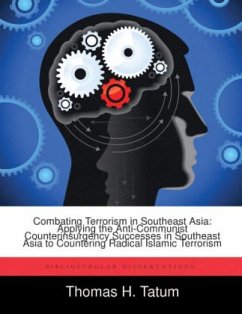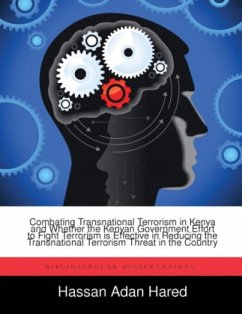
From Beirut to Khobar Towers: Improving the Combating Terrorism Program
Versandkostenfrei!
Versandfertig in über 4 Wochen
52,99 €
inkl. MwSt.

PAYBACK Punkte
26 °P sammeln!
Once again the specter of terrorism was thrust to the center of attention. The 25 June 1996 terrorist attack on Khobar Towers, Saudi Arabia, resulting in the death of 19 airmen, shook Pentagon halls. Yet only thirteen years earlier, a suicide car bomber killed 241 US Marines Beirut, Lebanon. Can the US effectively protect its forces against terrorism? This report investigates the Beirut bombing and the Khobar Towers attack to critically examine the recommendations for the improvement of DOD intelligence, counterintelligence, and security missions in combating terrorism. Recommendations followi...
Once again the specter of terrorism was thrust to the center of attention. The 25 June 1996 terrorist attack on Khobar Towers, Saudi Arabia, resulting in the death of 19 airmen, shook Pentagon halls. Yet only thirteen years earlier, a suicide car bomber killed 241 US Marines Beirut, Lebanon. Can the US effectively protect its forces against terrorism? This report investigates the Beirut bombing and the Khobar Towers attack to critically examine the recommendations for the improvement of DOD intelligence, counterintelligence, and security missions in combating terrorism. Recommendations following the Beirut bombing were not universally implemented by all services, leaving US military forces vulnerable to terrorist attacks. However, the wide-ranging recommendations emanating from the Khobar Towers incident were used as a template for enhancing the DOD combating terrorism program. Yet, there are several people who have taken exception to some Task Force recommendations. The proper use of limited intelligence and counterintelligence resources can assist in identifying terrorist threats to US forces and comprehensive terrorist threat assessments must guide the implementation of appropriate security measures to defend against the identified threats. While DOD intelligence and counterintelligence programs remain strong, they can be improved by examining their shortfalls prior to the Beirut bombing and Khobar Towers attack.












